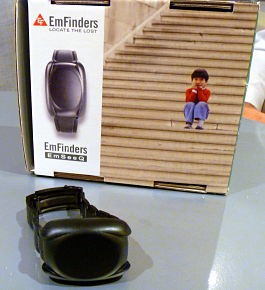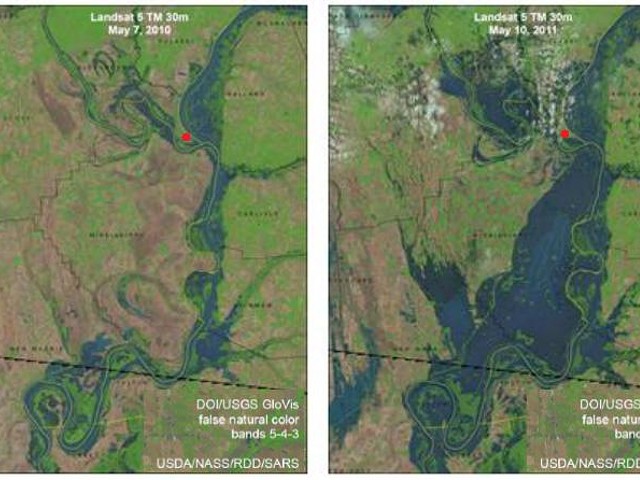
It costs between $5,000 and $50,000 for a sheriff's department to locate a missing person, depending on whether the search takes hours or days. That includes overtime pay for 20 or 30 police officers, fuel for the helicopter and gas for the squad cars.
That's why Harry Smeenk is in town this week, at the National Sheriff's Association Convention at America's Center downtown. He's selling a little device called an EmSeeQ that looks like a wristwatch and can locate a missing person in 30 minutes flat. Or less.
The EmSeeQ is actually a very tiny cell phone attached to a bracelet that's impossible for a person to break off. (Of the thousands of people who use it, Smeenk says, only one has managed to slip it, and that was an autistic kid who worked at it for several hours.) The device checks in with EmFinders, EmSeeQ's parent company in Dallas, ever 30 minutes. When a caregiver realizes a patient is missing, her or she calls up EmFinders. EmFinder's sends out an alert to the missing person's EmSeeQ to call 911.
At this point, the EmSeeQ starts sending out location signals every 25 to 30 seconds which can be picked up by the cellular network. EmFinders uses AT&T, Smeenk explains, because its tracking technology is the most accurate.
"GPS, like Sprint and Verizon use, doesn't work in a building," says Smeenk, "or a parking garage, or a wooded area or if a person's hiding in a viaduct under the street. AT&T mobile uses cell triangulation. It bounces the signal off cellular towers. It can help you find people within a 50 meter radius."
Although the technology can locate a person in a building, it can't determine which floor the person is on. "We're working on that," Smeenk promises.
There are 60 million people in the U.S. who have Alzheimer's, Smeenk points out. Sixty percent of them are likely to wander off at some point, and their destinations won't always be immediately obvious to their caregivers. That's not counting people with other cognitive disorders like dementia or autism.
Some police departments, Smeenk reports, have begun purchasing EmSeeQ's for local "frequent flyers." The device costs $199 with a $25-per-month service fee, which is a hell of a lot cheaper than $5,000 for a full police search.
Smeenk's not sure exactly how many people wear EmSeeQ's, though the product has been on the market since October 2009. He estimates "a couple thousand," most concentrated in California and Florida "for obvious reasons."
"We had one case just this morning in California," he says proudly. "A senior with Alzheimer's was left in a car by a family member. He came back a few minutes later, his dad was gone. We found him half a mile away fourteen minutes later."





